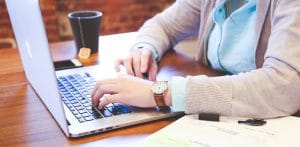Here’s a good reason why you should grab a copy of our FREE eGuide on Computer Security – How to protect yourself and your company.
The following article originally appeared in Smart Company.

LinkedIn has revealed millions of its users’ email addresses and passwords have been published online from a security breach that occurred in 2012.
The leak could affect more than 100 million LinkedIn users, according to the professional networking platform.
While LinkedIn took steps back in 2012 to reset user passwords it believed were affected by the original security breach, the social media giant is now taking further steps to invalidate the most recent passwords and accounts published online.
“We will contact those members to reset their passwords,” LinkedIn said in a statement.
“We have no indication that this is as a result of a new security breach. We take the safety and security of our members’ accounts seriously.”
LinkedIn is the third most popular social media platform in Australia, with more than 6 million users.
Small business owners also regard LinkedIn as the most effective social media platform, according to research.
Social media expert Dionne Lew, who trains executives on how to get the most out of LinkedIn, told SmartCompany small business owners need to be very conscious of online security when using social media.
“That includes setting strong passwords and changing them regularly,” Lew says.
“You don’t have to be a cyber security expert to know that good digital security hygiene is vital and should be a part of everyone’s practice.
“Be aware of the amount of hacking gong on and to do what you can as a user. Use long, complex passwords with a mix of numbers, symbols and [make sure they’re] not related to any personal details. And don’t reuse the same password across sites.”
Lew points out that when it comes to social media, online security is just as important as having engaging content.
“It simply has to be part of our DNA now that we think about digital safety,” she says.
“But also, we can only do so much as the users. The platforms are mainly responsible, but we need to do our part.”
